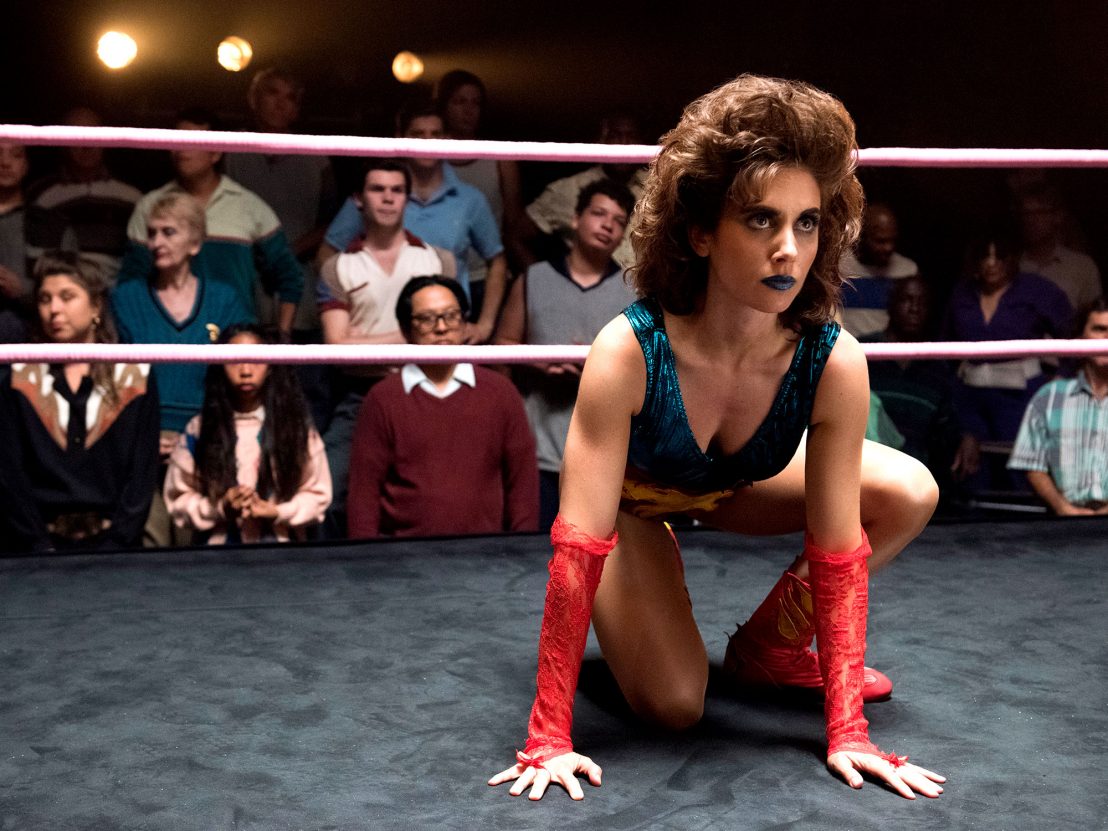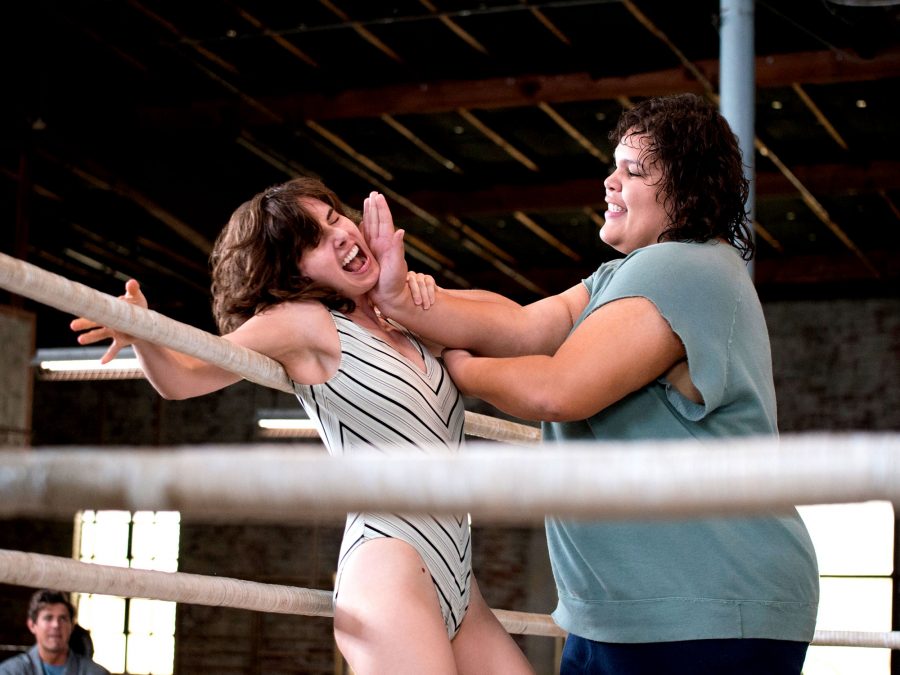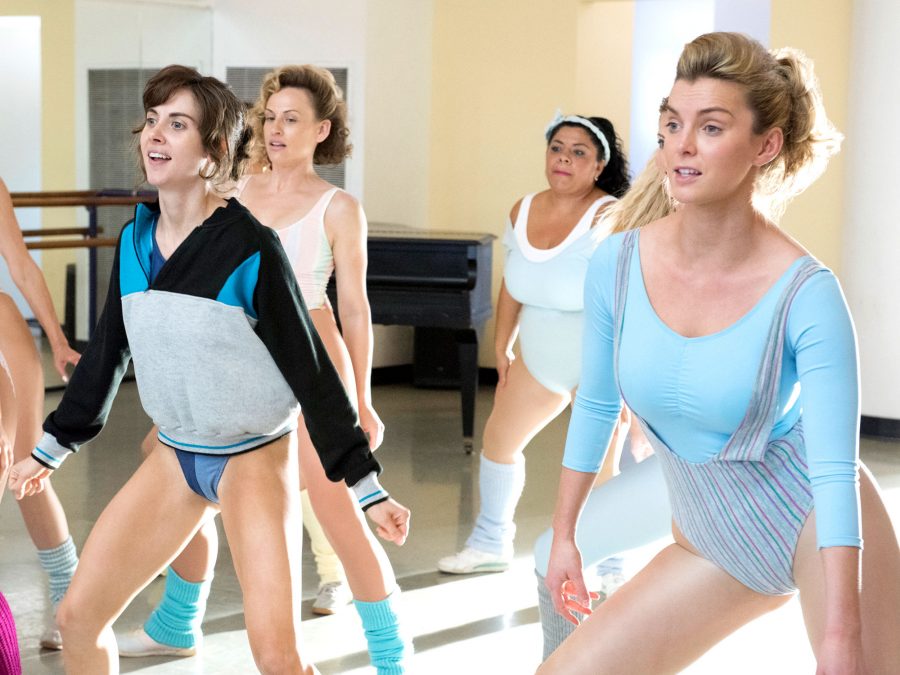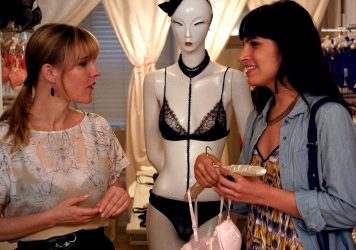
Netflix’s new show emphasises just how deep gender stereotypes run in mainstream media.
Opening to an upbeat ’80 tune and swirling animations reminiscent of neon blinking strip-club billboards, GLOW hardly seems like the type of show one might associate with the likes of Liz Flahive, Carly Mensch and Jenji Kohan – that is, until the camera focuses on an emotionally-charged Alison Brie delivering a monologue of the finest feminist order. In Netflix’s latest venture into a world dominated by women, Alison Brie takes on the role of Ruth Wilder, a devoted actress disillusioned by the lack of serious roles for women.
She has been living off of Cinnamon Toast Crunch for breakfast, lunch and dinner for the past week, and still finds herself having to rely on her parents to make rent. Purposely reading the lines of the male character during her latest audition, she hopes to prove herself to the casting director Mallory (Amy Farrington). Instead, Mallory informs her she is merely the type of girl they call in for auditions to show the directors what they don’t want, and advises her to try herself at erotica for that big break.
Set in California in the late ’80s, GLOW emphasises just how deep gender stereotypes run in the mainstream media. Gender equality does not form part of the industry’s dialogue but the path is being paved by women like Ruth, who “refuse to be bullied into submission” – in other words, she is done playing mothers, hausfraus and secretaries. While other women, such as her closest friend Debbie (Betty Gilpin), throw in the towel and revert to being “kept” housewives, too tired to keep on fighting for their place in a patriarchal society, Ruth continues to stand her ground.

She’s determined to make it in this male-dominated industry, and although she is forced to put up with the blatant sexism audible in every audition room, she is adamant to change the male perception of women by finding depth in the superficial – even when it is not asked of her. Such is the case when she is called in for an audition seeking “unconventional women” for a supposed TV show following female wrestlers to be directed by the relentless, coke-snorting Sam Sylvia (Marc Maron), who makes no secret of the fact he does not like her face. Or her ass, for that matter – both features which will be strongly influencing his decision as to whether she’ll make the cut.
Based on the true story of the Gorgeous Ladies of Wrestling, the premiere episode of GLOW is both empowering and infuriating to watch. With no apparent character work and no lines to read, Ruth and her fellow auditionees are still trying to work out whether they have been hired to play wrestlers, or are to actually become wrestlers who engage in real-life “tit-grabbing” and “cunt-punching” to a soundtrack of high-pitched screams, groans and other feral sounds.
While they are in fact learning the basics of wrestling, and will be trained as rigorously and unremittingly as their male rivals, it is not entirely clear whether GLOW will be about the actual sport or about sexualising its wrestlers. But if you were a teen in the ’80s, or are familiar with the real-life Gorgeous Ladies of Wrestling, you’ll know that GLOW will ultimately see these women come out on top – just not quite in the Hollywood starlet manner they had always imagined.

Brie’s touchingly hilarious performance drives home the contradicting notion of female empowerment: yes, she is stooping to a degrading level of “acting”, but she is set on owning her role by creating an actual character – much to Sylvia’s annoyance. Studying the moves of Hulk Hogan, and flinging herself across her apartment floor in a home-made cape in an effort to channel her inner bad-ass wrestling chick, she pumps herself up, ready to charm Sylvia into giving her another chance.
What ensues is a hysterical scene showing Ruth throwing her non-existent weight around the ring, complete with what are meant to be intimidating growls and hisses thrown in between borrowed lines from Cat on a Hot Tin Roof. Her act does little to impress Sylvia until Debbie, having just found out Ruth has been sleeping with her husband, storms into the ring and challenges her to a fight. Watching Ruth awkwardly defend herself, Sylvia can finally visualise his pilot episode – with Ruth and Debbie’s butts in starring roles. What he doesn’t realise is that these ladies are about to change the perception of women forever.
Though it pays tribute to an important milestone in popular culture, GLOW surfs the fine lines between female empowerment and catering to male fantasy, and it looks as though Netflix will be digging deeper into the sexism and blatant verbal abuse these women often had to endure than the 2011 documentary GlOW: The Story of The Gorgeous Ladies of Wrestling ever did.
The Gorgeous Ladies of Wrestling may have become international icons encouraging young girls and women to step outside confined gender roles and to take on whatever passion they were looking to pursue, but whether their route to this success really was as empowering as the documentary implied remains questionable. Fortunately, we have high hopes for Flahive, Kohan and Mensch delivering an unbiased depiction of the show’s history as GLOW evolves.
Published 21 Jun 2017

By Greg Evans
How Wrestling with Shadows exposed the tragic fate that befell Bret “The Hitman” Hart.

By Ella Donald
The hit Netflix series is a dizzying, lavish feast that manages to feel epic and intimate at the same time.

By Kate Jackson
Talented filmmakers like Desiree Akhavan and Ingrid Jungermann are making their voices heard.